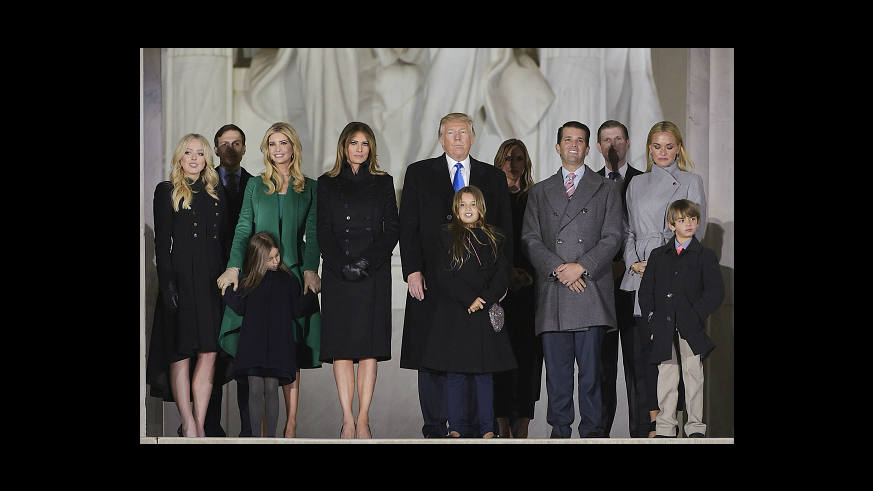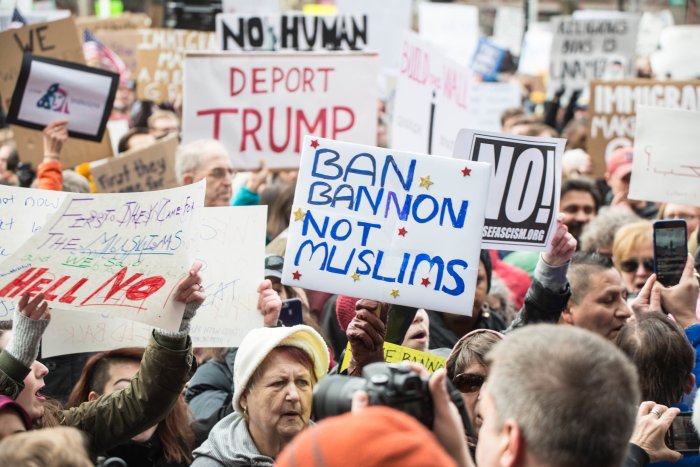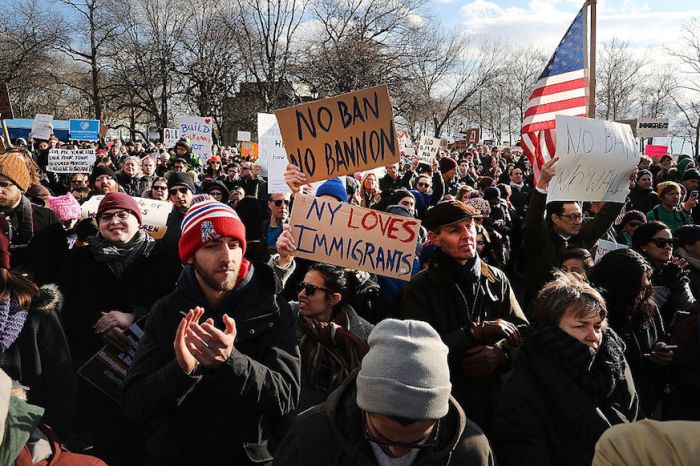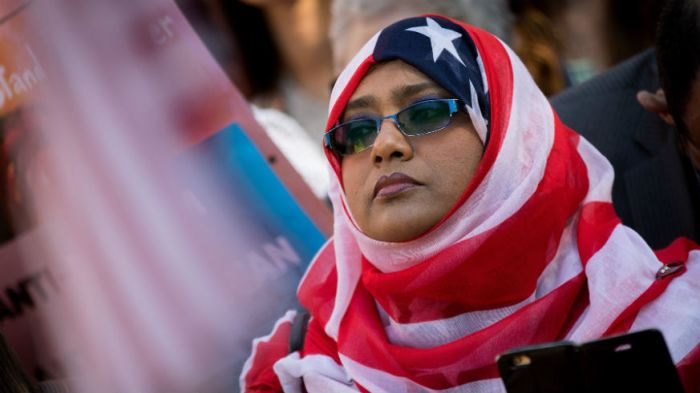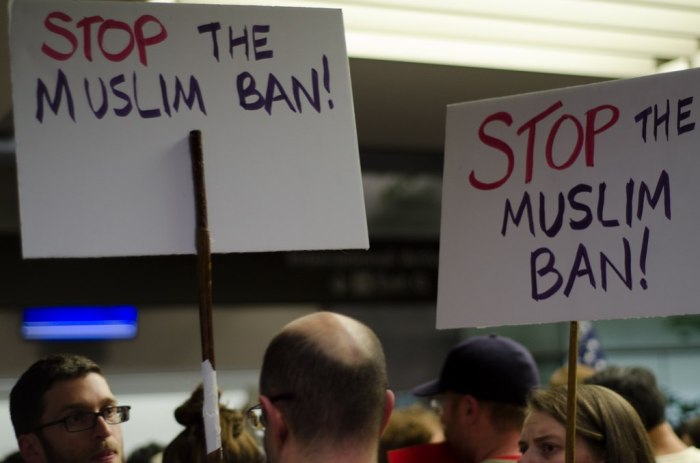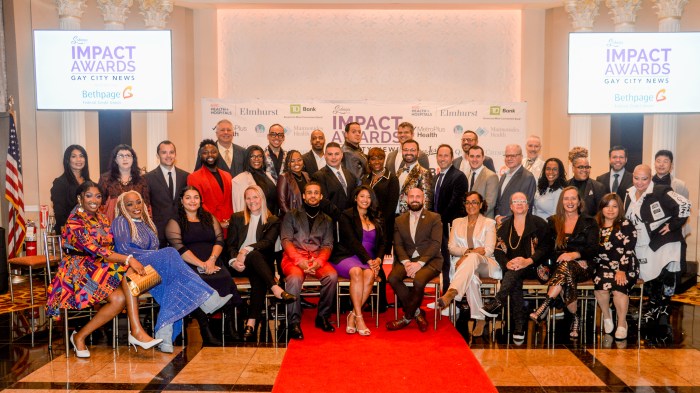The travel ban — decried as a Muslim ban by many — would actually leave Donald Trump’s grandchildren fruitlessly knocking on America’s door if the ban applied to his family.
Visa applicants and refugees are only exempt from the travel ban if they have a “bona fide relationship” with an American entity, according to the State Department. Adult children qualify, but grandchildren do not.
A department cable said grandparents, grandchildren, aunts, uncles, nieces, nephews, cousins, brothers-in-law and sisters-in-law, fiancs, “and any other ‘extended’ family members” are not considered close family.
To get a better idea of who would be allowed in under the new Trump travel ban and who would be sent back to their country of origin, let’s imagine the members of Trump’s family are foreign nationals.
First lady Melania Trump, her parents Viktor Knavs and Amalija Knavs, and Trump’s siblings Maryanne Trump Barry, Robert Trump and Elizabeth Trump Grau would be welcome.
Trump’s adult children — Ivanka, Donald Jr., Eric and Tiffany — along with their spouses —Jared Kushner, Vanessa Trump and Lara Trump — would be eligible for entry.
But the grandkids wouldn’t be allowed to step on American soil.
Ivanka and Jared have 5-year-old Arabella, 3-year-old Joseph and 1-year-old Teddy. Donald Jr. and Vanessa are parents to a posse of five who would be shut out: 10-year-old Kai, 8-year-old Donald III, 5-year-old Tristan, 4-year-old Spencer and 3-year-old Chloe. Eric and Lara are expecting a child, but that bambino would be left out as well.
The administration also narrowly interpreted which refugees will be allowed into the country, saying that links with refugee resettlement agencies would not be enough to win them admittance, likely sharply limiting the number of refugees allowed entry in coming months under the Trump travel ban.
The administration’s decision likely means that few refugees beyond a 50,000-cap set by Trump will be allowed into the country this year. A U.S. official said that as of Wednesday evening, 49,009 refugees had been allowed into the country this fiscal year. The State Department said refugees scheduled to arrive through July 6 could still enter.
The Supreme Court ruled that part of Trump’s travel ban could go into effect temporarily banning foreign nationals from six majority-Muslim nations — Libya, Iran, Somalia, Sudan, Syria and Yemen.
The U.S. government expects “things to run smoothly” and “business as usual” at U.S. ports of entry, a senior official told reporters.
Trump first announced a temporary travel ban on Jan. 27, calling it a counterterrorism measure to allow time to develop better security vetting. The order caused chaos at airports as officials scrambled to enforce it and was blocked by federal courts, with opponents arguing the measure discriminated against Muslims and that there was no security rationale for it.
The new measures take effect Thursday at 8 p.m.
Reuters contributed to this report.

